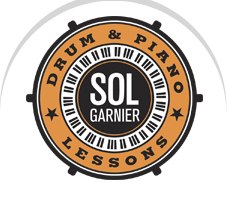When I was a teenager I was placed in a music section in high school. Although I was a drummer who didn’t know a third from a sixth (see the previous blog for an explanation), they did that. The teacher trusted that I would learn (he was right, look where I am now).
The first thing we studied was intervals (again, if you don’t know, go to my previous blog, I won’t say it again). As we did, we moved through history. We heard Bach, then Mozart, then Beethoven, then Liszt then Wagner. It was fascinating, but a little dry. I loved my teacher, and to this day, I use some of his teaching methods, but the course was about taking in as much information as possible in as little time as possible.
Then, many years later, I met a lady who replaced him. She admired my first teacher very much, but didn’t have the same approach at all. From day one, she made her students compose music. What a leap! What a concept! Back then, we thought that only the super gifted could lay a few notes on paper worth playing. The pupils of the lady who had replaced my beloved music teacher, instead of learning the intervals, discovered them through their own creations. And not just intervals but harmony, accompaniment, orchestration, dynamics, melodic sentences, the whole lot!
Now, I had a very solid musical education, and I am not spitting on it. But I must say that the story I just told you has made me think about my own teaching. When I say that I tailor the lessons to the students needs and wishes, I mean that, of course, we can study different style of music. But, on a deeper level, I also mean that I can approach everything according to the personality of my students. Is someone more academic and in need of references and well thought building tools or is someone ready to jump directly in the water whether they have a life jacket or not? Not the same people. Not the same approach.
I also discovered that something can be taught in more than one way. One piece of data can be remembered because it was hidden in the pages of a book, or because the teacher made a funny joke about it (my jokes are devastating by the way).
I love teaching not because I study music (I do that on my own time, thank you very much), but because I study people. Music reveals how their brain, their thought process work. And, so far, in the universe, we have not discovered something more fascinating than that. 
